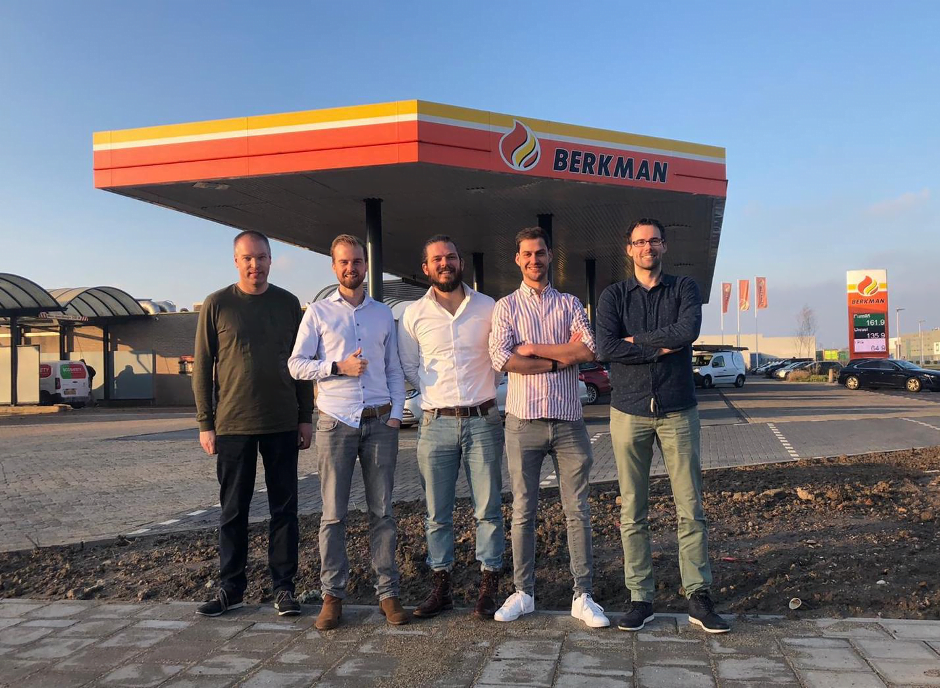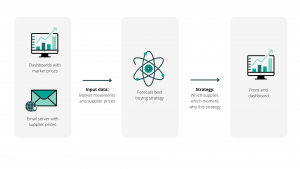Berkman
How a family-owned business can leverage data and machine learning
Started in 1903 as ‘Kolenhandel De Moriaan’ in Barendrecht, Berkman grew to one of the largest independent trader of energy and fuel in the Netherlands with about 130 employees, and a network of 85 gas stations. As a family owned business, their values are to stay personal and be reliable to their customers. Data and machine learning helps Berkman to become more efficient and act better on the latest developments in the energy market. Data also helps Berkman to become even more personal and fuels innovation. For them, we implemented a decision support engine.
The role of data at family-owned businesses
We all know the famous success cases of machine learning applied at tech giants and big corporates. However, only a few realize how large the potential of data and ML can be for (often) traditional, mid-sized companies like family businesses. Below, we describe the case of Berkman – a 128-year-old family business from Barendrecht. The approach generally applies to all kinds of mid-sized companies. To name a few, we already collaborated with Van Eeghen, De Heus, and PSH. This means there still is a huge potential for the over 60,000 mid-sized Dutch companies, and over 1 million Europe-wide!
The challenge of Berkman
For Berkman, although there are plenty of difficult processes, the general business comes down to a few basic processes. First, you buy energy (mostly gasoline), distribute energy over your locations, and sell energy with a small mark-up. The mark-up covers your operational costs.
Together with Berkman, we identified a few different use cases:
- Procurement: act better on the volatility in the energy market, buy cheaper in order to increase margin and/or lower prices for customers.
- Stock levels: the energy market is often a liquidity-heavy industry, meaning keeping stock levels high generally means higher costs. Reducing stock levels with accurate demand forecasting helps Berkman to keep costs low.
- Personalization: Berkman offers much more than just Energy. Retail and car wash represent an important part of the profit. Berkman aims to create mobility hubs in the future where multiple products are combined. Personalization through Next Best Action helps Berkman to better target and help their customers.
- Dynamic pricing: as an extension on personalization dynamic pricing and dynamic discount can help Berkman retain customers and increase margin.
Procurement: act better on-the-spot market
Each day, Berkman receives in the order of a hundred different purchasing prices from their suppliers. Also, these prices depend on volatile market movements. Using the market as a predictor for the most optimal buying decision, Berkman can get the best prices at the best time of the day. As a result, the company can then increase its margin. Collecting all the prices and doing the decision making manually is labour intensive and increases the risk of not choosing the best prices at the best time.
Decision support engine
Enjins created an automated decision support system that automatically reads all the prices, makes calculations, and stores the prices in a database. We then visualised these prices on a Power BI dashboard to see the lowest prices at each moment of the day. By collecting the supplier prices and market movements, we can forecast future price movements. Enjins developed a system to act on these forecasts and decide on the best buying strategy for the upcoming 24 hours. Ultimately, the goal is to have a simulation model that incorporates all the variables that come to play (such as logistics, and consumer behaviour) to select the most optimal moment for buying and the most optimal price for selling.
Way of working
At Berkman, we have successfully incorporated the full cycle of getting data products – like machine learning – in production. This life cycle comprises three distinct phases as shown in the figure above:
- Audit: assessing the current situation, deep-dive on the use cases and making a blueprint for the decision support engine.
- Development: together with the experts of Berkman, we developed a first model and decision support engine to decide on the purchase strategy. We made sure the decision support engine was incorporated into the processes as quickly as possible. Based on the feedback from the experts, we improved the performance of the system over time.
- MLOps: the difficult part of data and ML is not modelling or building stuff, it’s keeping things in production and improve over time. This process is called MLOps, standing for Machine Learning Operations. At Berkman, we made sure the system improved performance over time.
We believe these phases are essential when building lasting ML applications. The model makes predictions based on data input variables that can change over time. Our service aims to keep the models operational so Berkman can rely on a system that works correctly.
Please fill in your e-mail and we'll update you when we have new content!



 Follow us on LinkedIn!
Follow us on LinkedIn! Check out our Meetup group!
Check out our Meetup group!